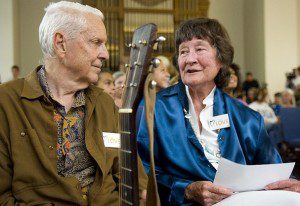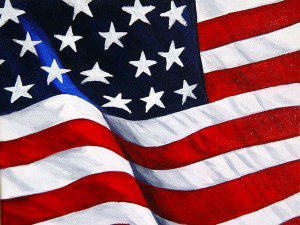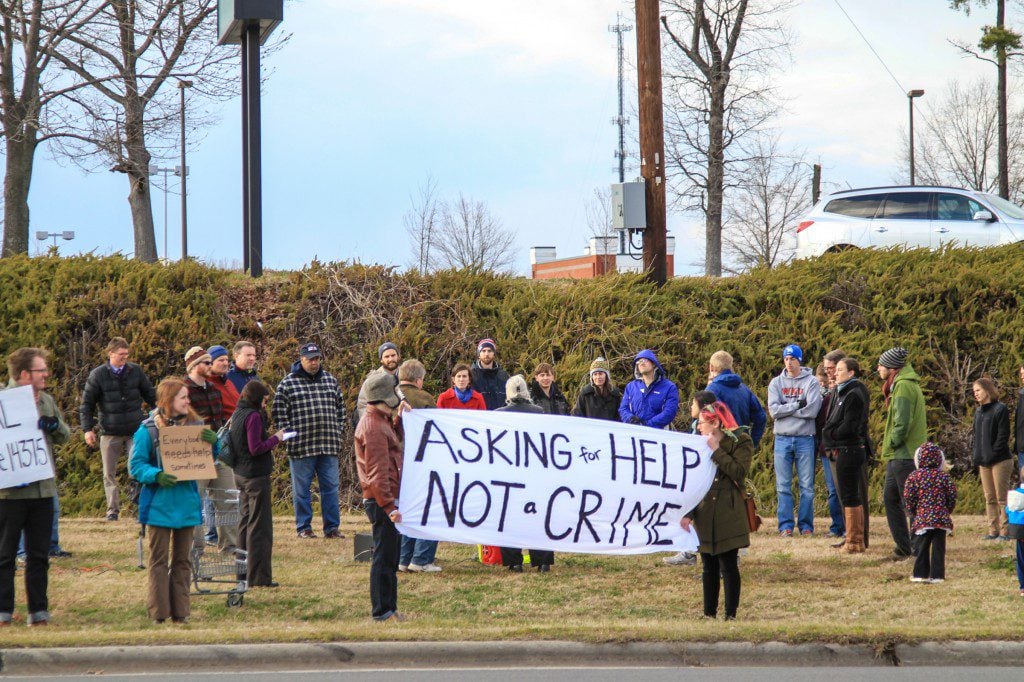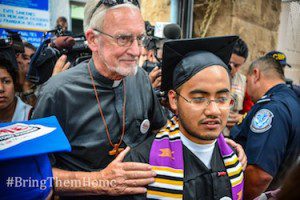
Since Pete Seeger’s death in January of this year, folks who know that I’m a sometimes song leader have asked me about him and his influence on communities that struggle for peace and justice. Maybe Pete said it best himself:
“Finding the right songs and singing them over and over is a way to begin to make our lives once more all of a piece. And when one person taps out a beat while another leads into the melody, or when three people discover a harmony they never knew existed, or a crowd joins in a chorus as though to raise the ceiling a few feet higher, then they also know there is hope for the world.”
Those who sang with Pete felt that hope, and it inspired them to press on together. No song from his repertoire is better know than “We Shall Overcome,” which became the anthem of the Freedom Movement around the world. (I’ll never forget listening to little kids on the streets of Baghdad singing it while American bombs fell in 2003.) Though Pete learned the song from tobacco workers at Highlander Folk School, it was his friend at Highlander, Guy Carawan, who taught the song to members of the Student Nonviolent Coordinating Committee (SNCC), just after they had started the sit-in movement in 1960. Candie, one of those students from Fisk University, ended up marrying Guy and singing with him for the next half a century. I had a chance to talk with her recently about Pete’s legacy and the songs that she, Guy, Pete and others taught the world to sing.
When I learned of Pete Seeger’s death, I thought of you and Guy. You were friends, I know. But you were also fellow-workers in the art of song leading and song sharing. Do you remember how you first met Pete? And how did you realize that your life’s work was to learn and teach folks songs?
Guy met Pete in 1952 when he was just finishing up his Masters Degree at UCLA. He was part of a group in Los Angeles called the Songmakers who were interested in music as a force for social change. Pete was active with the same group in New York and was visiting the West Coast. Guy describes hearing Pete one night in Topanga Canyon, a community of artists and activists, singing at a campfire. He was so impressed with this tall, vigorous banjo player — singing “Abayoyo” and “The Frog from Yankety Yank” — that he went home and had dreams about the banjo.
When he talked with Pete and told him that he wanted to make a trip through the South where his parents were from, Pete told him he should be sure to visit the Highlander Folk School in Monteagle, Tennessee, because it was a place where they incorporated singing and community culture in all their programs addressing serious problems. During a ten week trip through the South in 1953, Guy did visit Highlander with his traveling companions, Frank Hamilton and Jack Elliott.
Pete Seeger was a model for Guy of how you could use your artistry and your love of folk music to support peoples’ struggles for justice.
Pete’s death has been a reminder to many of the central role folk music plays in building community and sustaining struggle for what’s true and good in communities. What have you learned about the role music plays in social change and in pursuit of beloved community?
Because so much of our work has been through Highlander, I feel the use of folk music and singing has not been so much about building community as embracing the culture that already exists in grassroots communities that helps people feel strong and united. Guy, and Zilphia Horton before him, were good at drawing out the songs and the music that people brought with them when they came to Highlander and encouraging people to include them in their struggles.
I’ve heard Bernice Johnson Reagon, another of your friends and Pete’s, say, “The point of the song is to get to the singing, and the point of the singing is to make us into community.” What kinds of songs make us into a community? What have you learned about where those songs come from and how they’re best learned?
In his career Guy had a kind of dual life. At Highlander his role was to draw people out and encourage them, to learn their songs (and stories and experiences) and to teach songs he had learned from others. As a performing artist, he took songs from Southern struggles and communities into colleges, clubs and festivals and used them as a way to educate a larger public about what was happening in the South and in Appalachia. As both Pete and Bernice Reagon knew so well, getting people singing together and participating rather that simply listening, is important in building a sense of community and unity. Guy’s programs were very participatory.
What songs do you find yourself singing these days? What song would you most like to teach the world to sing?
We still love the songs that bring people together. Many of the songs we sing come from the Civil Rights Movement but then moved into subsequent movements and were adapted and changed. Some of those same songs had also been part of the Labor Movement. But we never wanted to be locked in the past or stuck in an era. We have learned so many new and interesting songs from groups that come through Highlander and we are also part of a large and vibrant musical community in Knoxville. So I think what we would hope is that people hold on to songs that mean a lot to them and to also learn and stay open to new songs and join with others to sing them. Don’t just be a consumer, be a participant.











